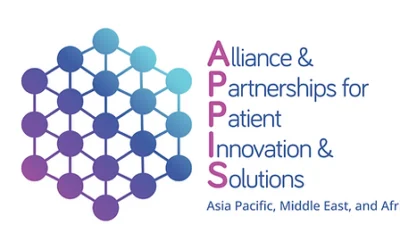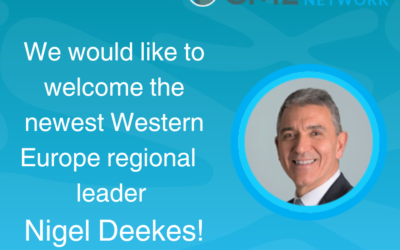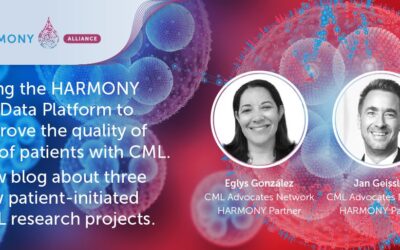Patients, borders, money, and mission:
A global perspective of chronic myeloid leukemia
– Summary of the CML educational session from ASH 2019 –
Chairs:
Hemant Malhotra, MD, FRCP; Mahatma Gandhi Medical College Hospital, Jaipur, IndiaSpeakers:
- The US Experience with Generic Imatinib in CML: Did Cost Predictions Meet Reality?
 Gary H. Lyman, MD, Fred Hutchinson Cancer Research Center, Seattle, WA
Gary H. Lyman, MD, Fred Hutchinson Cancer Research Center, Seattle, WA
- Meeting the Needs of CML Patients in Resource-Poor Countries: a Roundtable Discussion
 CML is truly one of our cancer success stories. The identification of a single genetic swap — BCR-ABL — and the development of tyrosine kinase inhibitors (TKIs) targeting this mutation have revolutionized care for patients with the disease.
CML is truly one of our cancer success stories. The identification of a single genetic swap — BCR-ABL — and the development of tyrosine kinase inhibitors (TKIs) targeting this mutation have revolutionized care for patients with the disease.
Patients take a pill once (or sometimes twice) per day, without the need for IVs or toxic chemotherapy.
The medications are generally well-tolerated, and most patients achieve remission.
Now, there are second-generation and even third-generation TKIs on the market, helping to personalize patient care further and giving clinicians choices when catering to comorbidities. Globally, however, deep challenges remain. “Most of the Western world feels that CML is cut and dried”, said Hemant Malhotra, MD, FRCP, of Mahatma Gandhi Medical College Hospital in Jaipur, Rajasthan, India. “But the situation is not the same in developing countries.” Dr. Malhotra chaired the Education Program session titled Patients, Borders, Money, and Mission: A Global Perspective of Chronic Myeloid Leukemia, which ran twice on Saturday. Treatment challenges for CML in resource-poor countries, along with unique interventions that may help, were at the center of this enlightening session.
 What are the biggest problems? “All of the issues stem from the fact that the patient has very little money,” Dr. Malhotra explained. The lack of funds affects multiple aspects of the treatment pipeline.
What are the biggest problems? “All of the issues stem from the fact that the patient has very little money,” Dr. Malhotra explained. The lack of funds affects multiple aspects of the treatment pipeline.
Not only do patients have difficulty paying for TKIs, doctors have trouble monitoring the disease because doing so requires costly BCR-ABL genetic testing that must be done on a regular basis. Then there’s the shortage of specialists.
“There are too few hematologists and medical oncologists trained in treating CML,” Dr. Malhotra stated. This means a patient has to travel long distances to find a specialist, leading to delays during what should be a tight treatment and monitoring schedule. “We say, ‘Come this day after six weeks or eight weeks,’ and sometimes they’re a week late. Sometimes they’re a month late,” said Dr. Malhotra.
 The session opened with Gary Lyman, MD, MPH, of Fred Hutchinson Cancer Research Center.
The session opened with Gary Lyman, MD, MPH, of Fred Hutchinson Cancer Research Center.
His talk focused on the financial aftermath following the introduction of the generic version of the first-generation TKI, imatinib, in February 2016, including prescribing patterns, patient outcomes, and total cost.
While even costs of the generic drug remain high, he showed that a majority of prescriptions now filled are generic and patient compliance has improved.
Next, Dr. Malhotra led us through a patient case that highlighted unique disease characteristics in resource-poor settings beyond low income such as younger age and more advanced disease at time of presentation. He also touched on creative indigenous alternatives to TKIs such as herbs and plants that are showing effectiveness in small studies.
Third, Jerald Radich, MD, of Fred Hutchinson Cancer Research Center, discussed the inability to measure BCR-ABL when there are minimal laboratory facilities available. To mitigate this problem, he reviewed innovative strategies for developing lower-cost testing, including the home-grown Spot On CML cartridge and ongoing work in point-of-care testing.
 Finally, Pat Garcia-Gonzalez of the Max Foundation, a not-for-profit dedicated to widening the scope of cancer treatment regardless of zip code, offered a unique philanthropic perspective. Illuminating the slew of bureaucratic and personal challenges faced by patients in low-income countries, she discussed the herculean efforts made by the Max Foundation to address these issues.
Finally, Pat Garcia-Gonzalez of the Max Foundation, a not-for-profit dedicated to widening the scope of cancer treatment regardless of zip code, offered a unique philanthropic perspective. Illuminating the slew of bureaucratic and personal challenges faced by patients in low-income countries, she discussed the herculean efforts made by the Max Foundation to address these issues.
Through the foundation, millions of daily drugs and routine testing have been made available to dozens of developing countries.
There’s an old adage in medicine: “The best medication is the one the patient takes every day.” With access and monitoring issues, this couldn’t hold more true for CML globally. Before his session, Dr. Malhotra was asked what he hoped the audience would take away. “The developed world needs to join hands with us,” he said.
More information: https://www.hematology.org/Annual-Meeting/Program/Education-Program.aspx – 16170
– To download this report as a PDF file, please, click HERE –
– Please, click here to download the full pdf ASH19 CML Advocates Network Congress Report (18.87 MB)


